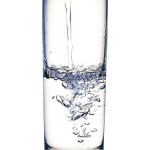 In all of my years as a health professional, teacher and consultant, I’ve been telling patients, clients and students the same thing about what to drink. It’s really simple. Drink water.
In all of my years as a health professional, teacher and consultant, I’ve been telling patients, clients and students the same thing about what to drink. It’s really simple. Drink water.
As a dentist in private practice, I worked hard to convince parents of young toddlers to stay away from juice and drink water instead. Some of those toddlers were already hooked on juice, I supported those parents in making serial dilutions until their kids were drinking 100% water. Without a doubt, water is the best drink for their teeth and for their bodies. I worked to convince the pediatricians in my community to stop recommending juice for toddlers. There is absolutely no health benefit gained by drinking juice. It creates a sweet tooth and can be the catalyst for picky eating behaviors.
As a nutritionist and school food advocate, I’ve given many presentations that make the argument against soda, diet soda, sports drinks, “flavored waters” and juice. None of these products are good for our kids teeth, minds or waistlines. Water is the best drink for students.
Two giant multinational corporations, Coke and Pepsi, have shifted from just selling brown colored sugar water over the years. Coca Cola now own brands like Minute Maid, Capri Sun, HiC, Nestea, Monster Energy, Odwalla, Powerade, Vitamin Water. Pepsi owns Tropicana, Gatorade, Izze, Propel Fitness Water, SoBe.
I’m betting that you’ve seen some or all of these brands in your child’s school cafeteria or in your local market. You may have been tricked into buying these products. They are heavily promoted as “healthier for you” beverages. I wish they were healthier, but they really are not! My mom switched to “light” cigarettes in the 1970’s. Mom, along with millions of other smokers, thought light cigs were “healthier” for her than the full strength ones. It seems like the beverage companies are playing the same game.
Water is the best drink to drink. Eat fruit, drink water. Contrary to what you might believe there is no health benefit in drinking fruit juice. Pediatric endocrinologist, Robert Lustig, MD makes this point very clear by demonstrating that fructose is toxic in large quantities, because it is metabolized in the liver in the same way as alcohol, which drives fat storage and makes the brain think it is hungry.
As the years have gone by, I’ve learned more and more about the environmental impact of what we eat and drink. It should be no surprise that if something is harmful for the environment, its harmful to human health as well. After all, we are all connected.
When considering the bigger picture, the planet we’re living on, we’ve got to think beyond the drink and consider the container. It’s time to take a stand against bottled water. Movies like Flow and Tapped explain why we need to be concerned about this issue. Today Annie Leonard released a simple 8 minute movie, The Story of Bottled Water that tells it like it is. Have a look:

